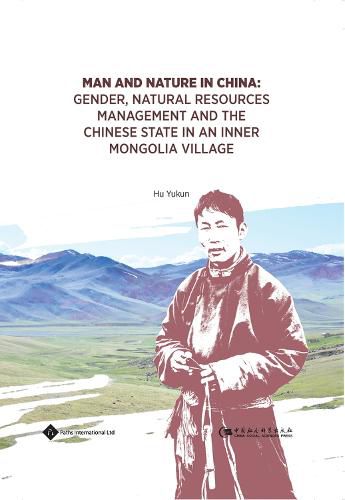Readings Newsletter
Become a Readings Member to make your shopping experience even easier.
Sign in or sign up for free!
You’re not far away from qualifying for FREE standard shipping within Australia
You’ve qualified for FREE standard shipping within Australia
The cart is loading…






The process of China’s rural modernization over the past half-century was punctuated by an ambitious attempt to transform the natural environment. Wars against nature
were a nationwide characteristic in rural China during the collective period. After decollectivization, rather than being reversed, overexploitation of nature intensified due to rapid economic development and increased inequality. Meanwhile, the rhetoric of man can conquer nature was replaced by rehabilitate beautiful landscapes, seeming to embody a shifting conceptualization of people’s relationship to nature.
In the background of the twin campaigns of war against nature and rebuilding beautiful landscapes, this book provides a first-hand understanding of natural resource management and environment changes from a gender perspective in the context of larger economic and ecological transformations in a peasant community in Inner Mongolia over the past five decades. It examines how village men and women managed, viewed and negotiated environmental resources in their everyday lives along lines of wealth, ethnicity, age, marriage status, and livelihood. The ethnographic methodology of this study triangulates complementary qualitative and quantitative techniques of participant observation, informal conversations, in-depth interviews, oral histories and life stories, with household census and survey, archival materials, and local government statistics and documents.
$9.00 standard shipping within Australia
FREE standard shipping within Australia for orders over $100.00
Express & International shipping calculated at checkout
The process of China’s rural modernization over the past half-century was punctuated by an ambitious attempt to transform the natural environment. Wars against nature
were a nationwide characteristic in rural China during the collective period. After decollectivization, rather than being reversed, overexploitation of nature intensified due to rapid economic development and increased inequality. Meanwhile, the rhetoric of man can conquer nature was replaced by rehabilitate beautiful landscapes, seeming to embody a shifting conceptualization of people’s relationship to nature.
In the background of the twin campaigns of war against nature and rebuilding beautiful landscapes, this book provides a first-hand understanding of natural resource management and environment changes from a gender perspective in the context of larger economic and ecological transformations in a peasant community in Inner Mongolia over the past five decades. It examines how village men and women managed, viewed and negotiated environmental resources in their everyday lives along lines of wealth, ethnicity, age, marriage status, and livelihood. The ethnographic methodology of this study triangulates complementary qualitative and quantitative techniques of participant observation, informal conversations, in-depth interviews, oral histories and life stories, with household census and survey, archival materials, and local government statistics and documents.